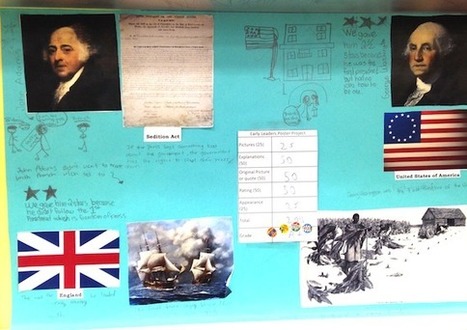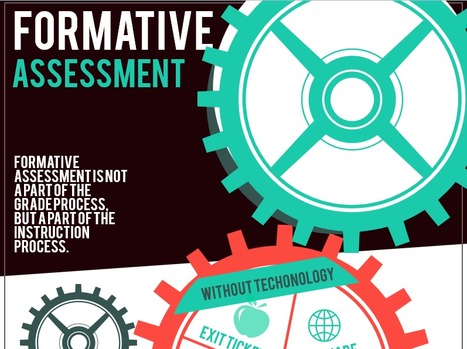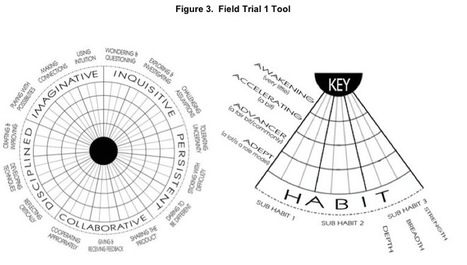Reshan Richards discusses the use of Explain Everything & iPads to build a Qualitative Formative Assessment Toolkit.
Get Started for FREE
Sign up with Facebook Sign up with X
I don't have a Facebook or a X account
 Your new post is loading... Your new post is loading...
 Your new post is loading... Your new post is loading...
Kathy Lynch's curator insight,
March 23, 2014 1:25 PM
Ideas to expand thinking on current assessments, particularly for those who do not test well. Thx Beth Dichter! 
Rosemary Tyrrell, Ed.D.'s curator insight,
March 24, 2014 1:46 PM
As teachers today we are told that we must teach our students and help them construct "enduring understanding", providing them with the ability to transfer knowledge from one subject area to another subject area. We are also told that we should personalize education, requiring us to know the strengths and weaknesses and incorporate this into our lessons. And let's not forget that we must also assess our students. How can we make our assessments help students with content retention? This post focuses on this question, and provides five suggestions on ways to do this. The first three suggestions are: Tests Where Notes or Textbooks are PermittedTake-Home TestsStudent-Made TestsThese types of tests may take more time to create but they have the ability to be written so that students have to do more than memorize information. There is more information on this in the post. The next suggestion is: Projects Pre-Approved by the TeacherThis requires that students demonstrate mastery of the subject. This will require the student to create (a 21st century goal) and additional information is in the post, including a discussion of what this might look like. The final suggestion is: Revisions and Retests to Build SkillsetsThis section discusses what we may do to help out student build their skillsets through feedback and opportunities to construct accurate information. As you read this post you may begin to consider alternative ways to assess your students that help them with content retention.

Kate Erricker's curator insight,
January 24, 2014 5:18 AM
Could this approach also work for comparative poetry analysis and Literature study?

LundTechIntegration's curator insight,
September 22, 2013 11:44 AM
This a great waky to do that AFL at the end of the day. 
Deb Eisloeffel's curator insight,
February 14, 2019 10:40 AM
Managers can ask these questions of employees who have just returned from training. It will help them assimilate what they've learned. Ask them to share their responses with the team and everyone learns.

Ante Lauc's curator insight,
June 1, 2013 4:43 AM
I prefer love and freedom and look everything through these criterias. |

Mary Starry's curator insight,
September 14, 2014 7:38 PM
The role of immediate, meaningful feedback must also be incorporated into the active learning environment.

Pearta Nolan's curator insight,
March 12, 2014 5:45 AM
This scoop is fantastic for educators, formative assessment is a pivital part of assessment and all teachers must be aware that there are many examples to do formative assessment. Within the Australian Curriculum all Key Learning Areas will benefit from this document. The document is also downloadable, this is great to allow teachers to change examples to suit their specific needs.

niftyjock's curator insight,
January 8, 2014 4:18 PM
Would role-plays fit into Performance Assessment?

Mounds View High School's curator insight,
January 15, 2014 2:41 PM
Good ideas to make formative assessment part of the "instructional process". |























Good reminders for teachers with iPads!
Thx Beth Dichter
Great resource.